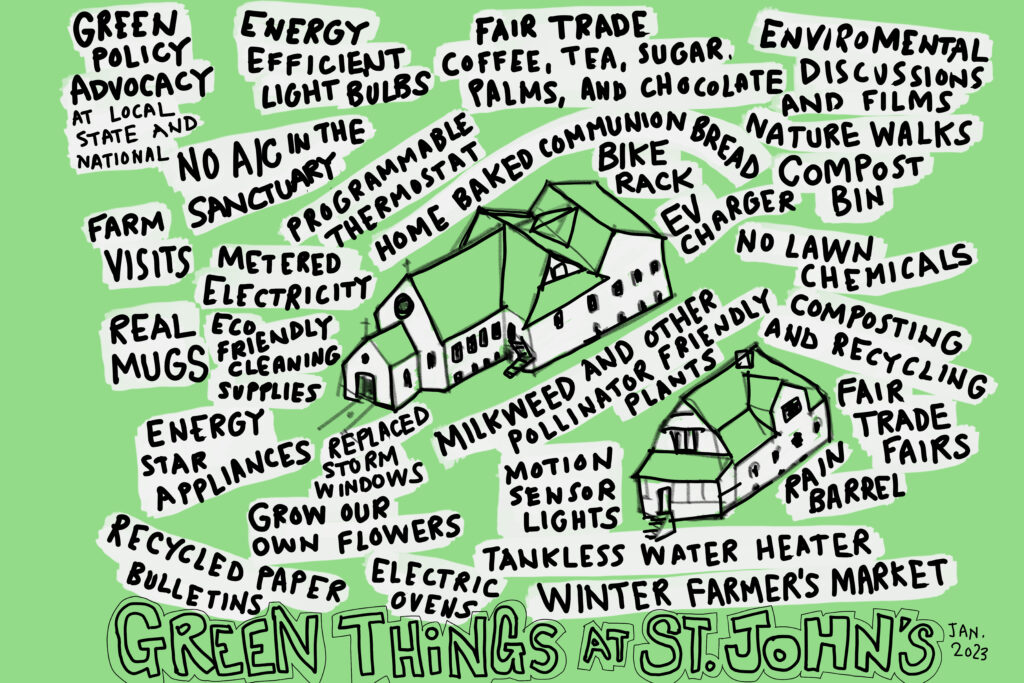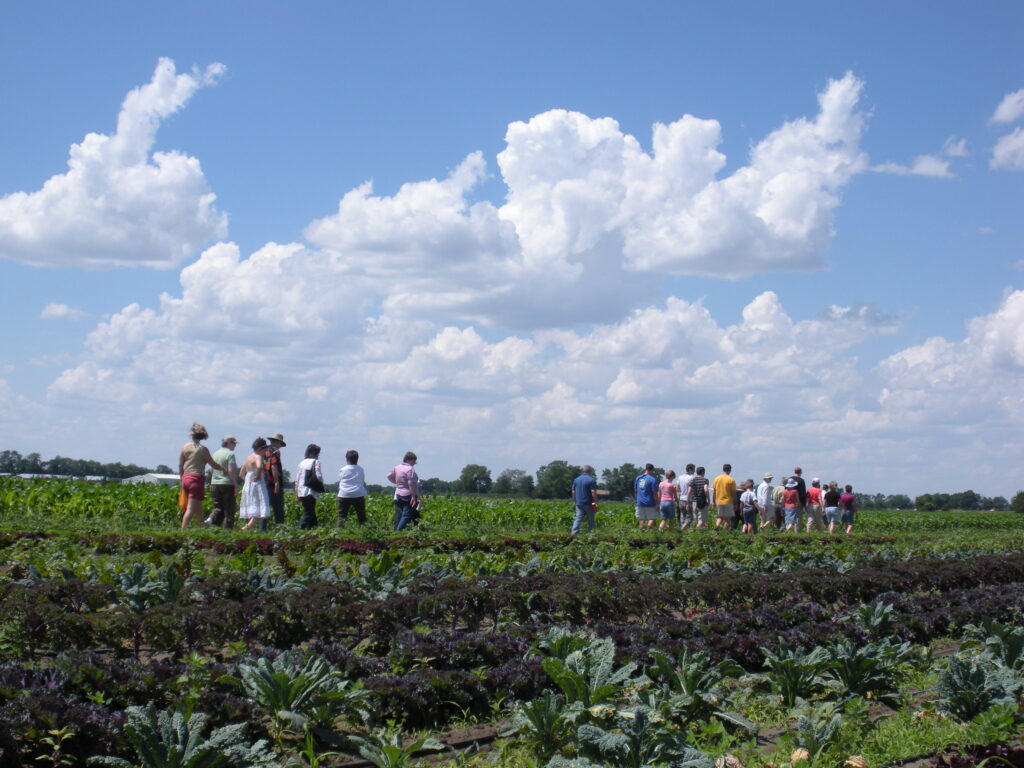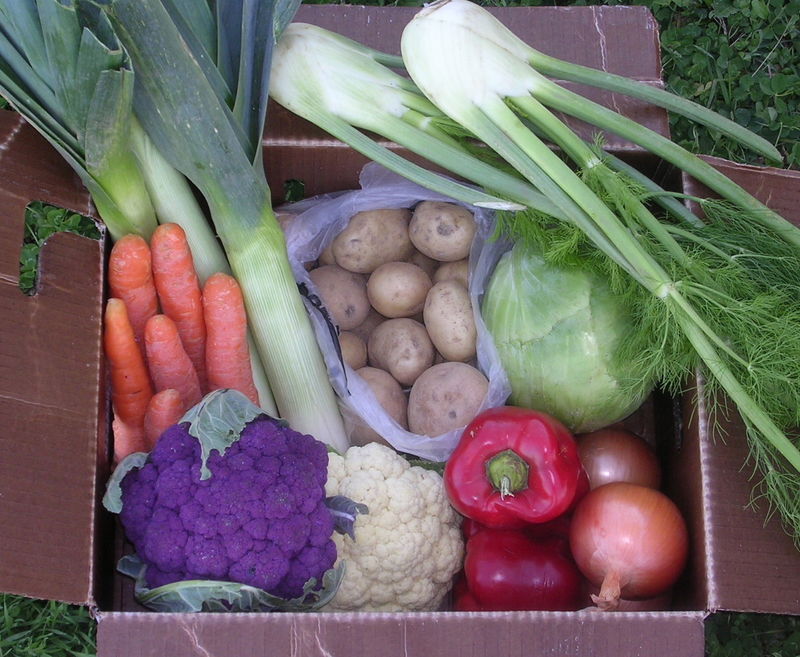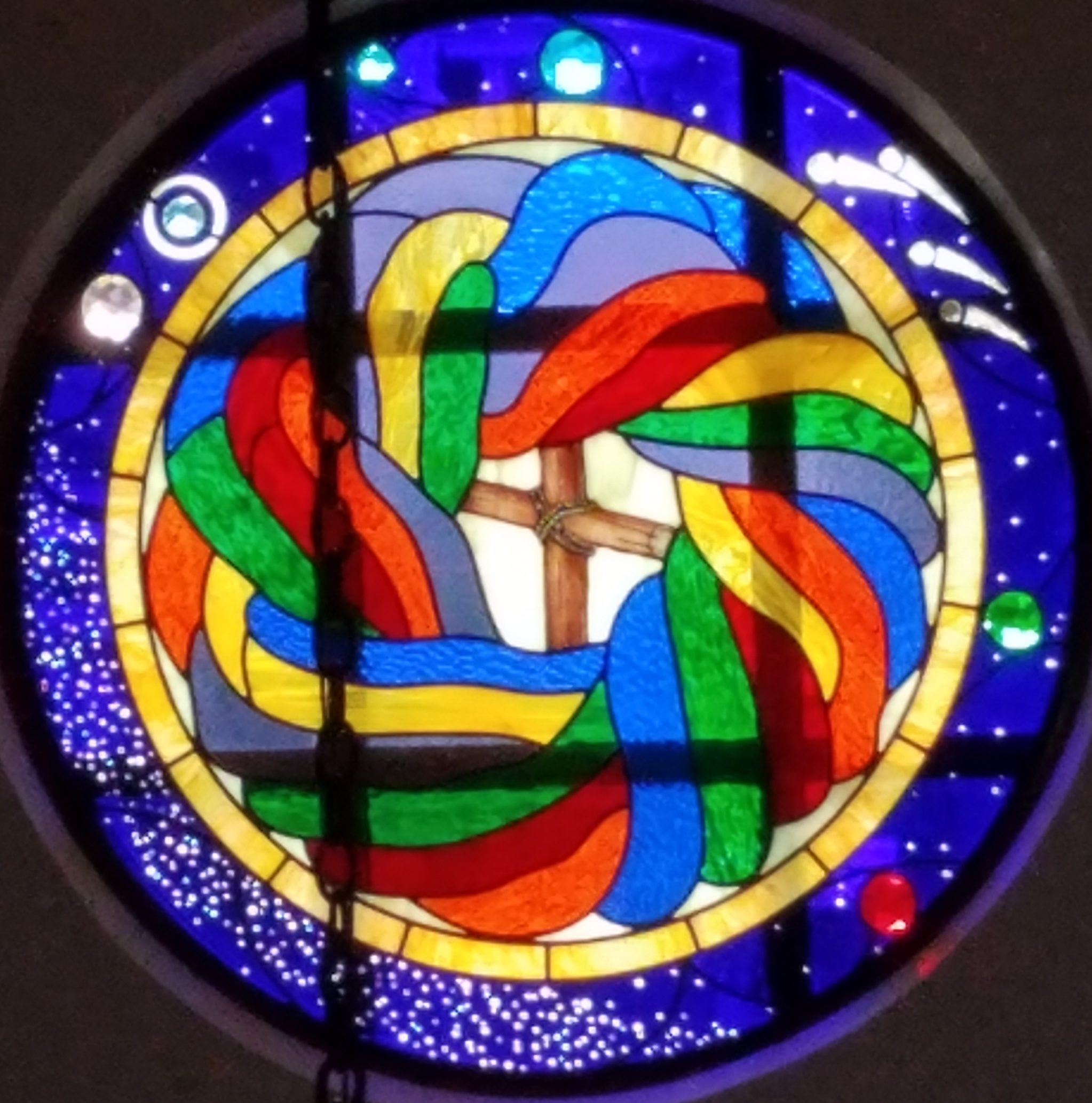Adopted by the Vestry on October 19, 2022

St. John’s Sustainability Vision
In recognition and honor of the Indigenous peoples who first lived in harmony with, cared for, and worshiped on this land and in accordance with our scriptural mandate to be good stewards of God’s creation, St. John’s Episcopal Church pledges to become a sustainable community:
- Our green practices are to serve as a model for individuals and communities.
- Our land is to be healthy and maintained so as to support plant, animal, and human health.
- Our guide to our church’s consumption is to be “Reduce, Reuse, Recycle.”
- Our goal is to achieve net zero carbon emissions and to move toward 100 percent electricity from renewable clean sources by the year 2050.
St. John’s Sustainability Mission
St. John’s Episcopal Church is to care for, preserve, and sustain our land and planet through our words, our use of resources, and our actions, specifically in these ways:
- All products for publications, cleaning, cooking, worship, and lawn care are to be ecologically safe.
- Before purchasing new items, every effort is to be made to use and repurpose existing items.
- Appliance choices are to be based on energy ratings.
- Vendor choices for repair and maintenance of the church buildings, rectory, and church grounds are to be based on their commitment to sustainability.
- Choices are to promote and support our neighbors in all parts of Chicago, especially in neighborhoods that have a history of environmental racism.
St. John’s Sustainability Mandate
The St. John’s Episcopal Church vestry is charged with guiding our church to fulfill our sustainability vision by carrying out our mission according to our theological framework, scriptural precepts, and catechism:
Theological Framework
This sustainability vision is a response to our belief that the Genesis stories of creation require a response to care for all living things, this planet, and the universe as gifts from God.
Scriptural Precepts
Then God said, “Let us make humankind in our image, according to our likeness; and let them have dominion over the fish of the sea, and over the birds of the air, and over the cattle, and over all the wild animals of the earth, and over every creeping thing that creeps upon the earth.So God created humankind in his image, in the image of God he created them; male and female he created them. AndGod blessed them, and God said to them, “Be fruitful and multiply, and fill the earth and subdue it; and have dominion over the fish of the sea and over the birds of the air and over every living thing that moves upon the earth.” (Genesis 1:26-28)
The earth is the Lord’s and all that is in it, the world, and those who live in it. (Psalm 24:1)
Catechism (Book of Common Prayer, page 845)
Q. What are we by nature?
A. We are part of God’s creation, made in the image of God.
Q. What does it mean to be created in the image of God?
A. It means that we are free to make choices: to love, to create, to reason, and to live in harmony with creation and with God.”

History of our Sustainability Team: The Genesis Group sponsors green events and strives to live sustainably in our homes, our church, and our community.
St. John’s doesn’t just talk about our responsibility to uphold the health of our planet; we have a commitment to advocate for its health through the Genesis Group. This group was organized by people who saw a need for our church to act on our concerns for sustainable living. Though quite new to St. John’s, the Genesis Group has taken the reins, and in a short time has realized many objectives, such as using ceramic cups for after-worship coffee hours and meetings; using recycled paper products in the building; distributing free compact fluorescent light bulbs; serving and selling Bishops Blend Free Trade Coffee; drawing on the energies of our Christian education group to step up our recycling program; installing rain barrels on the church grounds; partnering with an organic farm in Southwest Wisconsin to deliver fresh vegetables to St. John’s every week from July to November; and hosting a free trade fair featuring Ten Thousand Villages, a member of the International Fair Trade Association. St. John’s has received a Congregational Best Practices recognition from © Faith In Place for all the Genesis Group’s accomplishments. Individuals in the group are invited to research issues of interest to bring to the table and share with the congregation. Anyone is welcome to join or just come and listen in on one of the meetings, which are held monthly.
– Elizabeth Smolinski

Being/Going Green
It can be a renewing experience to try to extend your energy-saving habits one step further. Here are some ideas to try:
• Buy more locally produced food. You can reduce emissions from transportation by buying from farmers markets and eating foods in season rather than foods shipped in from around the globe.
• Use alternative transportation to work, school, or your place of worship. This is a good way to slow down and find a few extra minutes for contemplation during Lent.
• Eat less meat. Reducing the amount of meat you consume, even just one day a week, will make a difference in your carbon footprint.
• Turn down your thermostat. Grab a blanket and add an extra layer of clothing. Even one degree lower will add up to big energy savings.
• Try a media fast. It can be very rewarding to turn off televisions, computers, and radios a few nights a week and sit down to a board game with your family.
Find more ideas here!
–from The Rev. Canon Sally G. Bingham, Interfaith Power & Light
